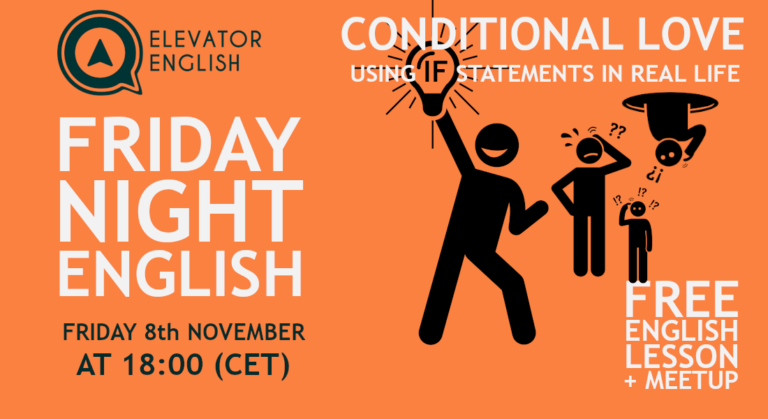
Could and Would are often mixed up and many students don’t know the difference. It can be difficult to know if you should use would or could use could in each situation because could and would could be very similar.
Confused? Well, don’t worry. You can use this quick easy guide to help you understand what the difference is between could and would. Learn how to use could and would in English conversation. Then, test your understanding of could and would and get feedback on your professional English.

CAN
We use ‘Can’ to talk about ability and things that we are actually able to do. We also use it for permission and what you are allowed to do. When we use ‘Can’ in conversation we are telling, not suggesting and so what you say will be taken as a fact.
“He can swim from England to France”
(He is able)
“We can help you.
(We are able to help.)“
“You can join us.”
(You are allowed.)
“Can she join us?”
(Is she able / allowed?)
We use the negative form ‘Cannot’ or the contraction ‘Can’t’ to talk about things that we are unable to do, are not possible or are not allowed.
“I can’t swim from England to France”
(I’m not able)
“We cannot help you.”
(It’s not possible.)
“You can’t join us.”
(You are not allowed.)
“Can’t she join us?”
(Why isn’t it possible?)
COULD
Just like ‘Can’, we use ‘Could’ to talk about ability and things that we are actually able to do. However, because ‘Could’ is the softer form of ‘Can’, the statement is not certain. There is a choice involved or a chance that things might change. We also use ‘Could’ for permission, but because it is softer and not certain there is an implied ‘if‘ condition involved.
“He could swim from England to France”
(If he wants to.)
“We could help you.”
(If you want us to / If we want to.)
“You could join us”
(If you want to / If you bring cake.)
“Could she join us?”
(If you want her to / Is it okay?)
The negative form ‘Could not’ or the contraction ‘Couldn’t’ can be a little bit tricky. Just like ‘Cannot’ we use it talk about things that we are unable to do, are not possible or are not allowed to do. It’s still negative, so it’s still not possible, but now there are implied ‘even if‘ conditions that make it extra impossible.
“I couldn’t swim from England to France”
(Even if I wanted to.)
“We couldn’t help you.”
(Even if you asked us nicely)
“You couldn’t join us.”
(Even if you brought cake)
“Couldn’t she join us?”
(Is there any way it may be possible?)
WILL
You know we use ‘will’ for the future tense, but did you know that ‘Will’ is also connected to ‘willpower’ or the things that we want to do? We can’t know for sure what will happen in future, but we can be sure about what we ‘want’ to happen. This is why we have to be careful when using ‘will’ with other people as it can easily sound like we’re telling them what they want. Also, because you are the one saying the sentence, sometimes it isn’t clear who wants this, you or the subject.
“He will swim from England to France”
(He or I plan/want this)
“We will help you.”
(This is the plan / We want to help)
“You will join us.”
(You don’t have a choice / I want this)
“Will she join us?”
(Yes or No? What does she want?)
We use the negative form ‘Will not’ or the contraction ‘Won’t’ to talk about things that we don’t plan to do or don’t want to do for whatever reason.
“I won’t swim from England to France”
(I don’t plan/want to)
“We will not help you.”
(It is not the plan / We don’t want to)
“You won’t join us.”
(Have no choice / I think you don’t want to)
“Won’t she join us?”
(Doesn’t she want to? Is it not the plan?)
WOULD
Just like ‘Will’, we use ‘Would’ to talk about plans or what we want. However, because ‘Would’ is the modal form of ‘Will’, the statement is not certain. Because things are not certain we have to explain why things are not certain. This is why we use would with conditionals (IF sentences). There are many reasons why something may not be certain, but usually, it is because there is another person involved and we can’t know for sure what they are thinking or what they want to do.
“He would swim from England to France, but he is tired.”
“We would love to help you, but we are busy at the moment.”
“You would join us if Mike was in the group.“
“Would she join us if we asked her?“
The negative form, ‘Would not’ or ‘Wouldn’t’ work in the same way as ‘Would’ and we usually need to explain why things aren’t certain. However, when we don’t explain in detail this is often an invitation for others to ask ‘Why not?’.
“I wouldn’t swim from England to France”
(Ask me why not.)
“We wouldn’t help you, even if we could.”
(We hate you)
“You wouldn’t join us.”
(I don’t think you would, I’m not sure.)
“Wouldn’t she join us, if we asked her?”
(I think she would)
KEY POINTS

Elevator English tests give you feedback on your English. After you select and answer, wait a moment for an explanation of why this is correct and learn how you can use these phrases in your professional English.
This quiz is for logged in users only.

Time's up
Do you find English grammar difficult?
Would you like more help with your Business English?
Is there an example you would like to check?
Don’t be shy, just ask! Leave a comment below and I’ll do my best to answer you as soon as I can.
If you would like to improve your professional English, I can help.
I am a CELTA-qualified Business English teacher with over 12 years experience helping professionals just like you elevate your English.
2 Responses
What a useful, challenging, humorous test!
Thank you so much, Mike!
You are very welcome! I’m glad you enjoyed it!